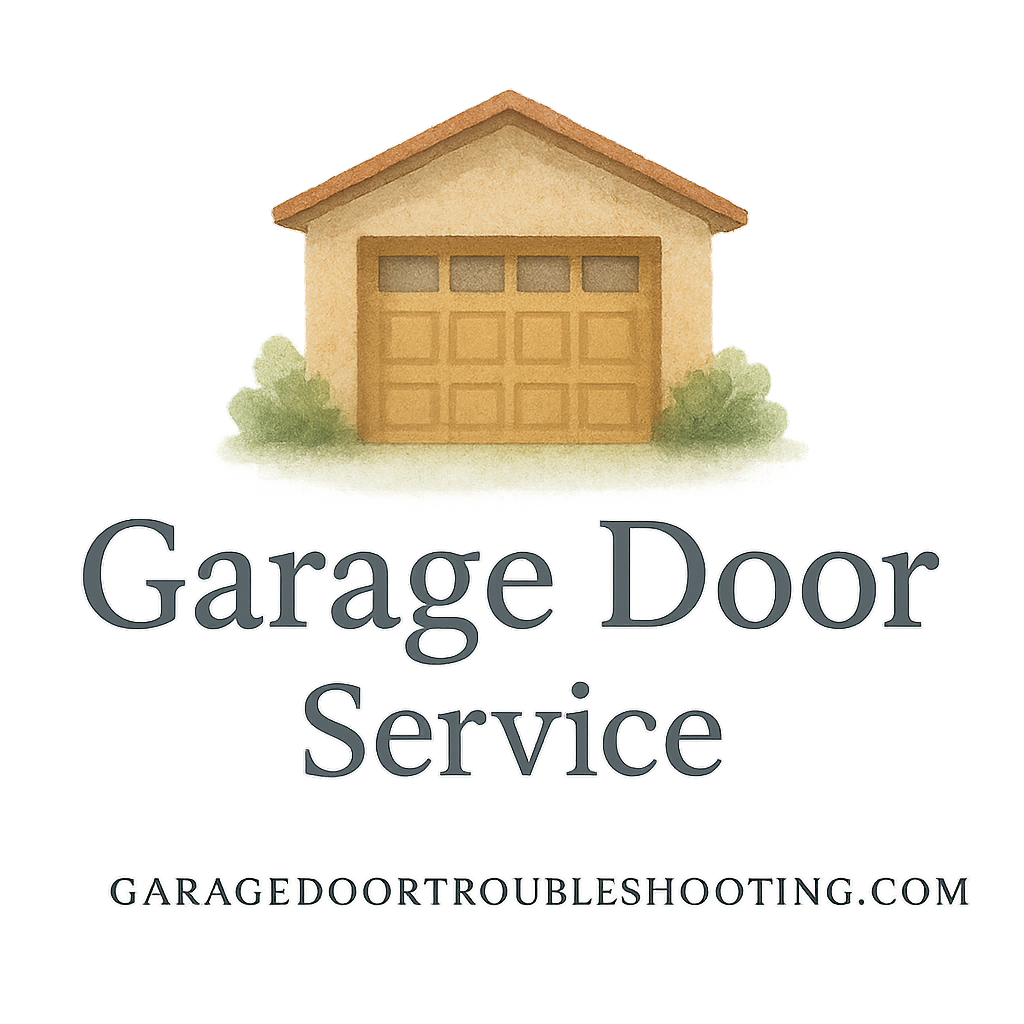Why Garage Door Sensors Matter
Garage doors today aren’t just about convenience—they’re also about safety. The tiny devices mounted near the floor on each side of your garage opening, known as safety sensors, play a huge role in protecting your family, pets, and even your car. Without them, a heavy garage door could close unexpectedly, creating a dangerous situation.
The Role of Safety Sensors
Garage door sensors work by sending an invisible beam of light between each other. If that beam is interrupted, the door immediately stops or reverses. This feature prevents accidents and is legally required in many places for new garage door installations.
For more details on installation advice, you can check out this guide.
Common Problems with Garage Door Sensors
Even though sensors are reliable, they’re not perfect. The most frequent issues include:
- Misalignment between sensors.
- Dust, dirt, or spider webs covering the lenses.
- Loose or damaged wiring.
- Sunlight interference.
- Physical obstructions like toys, garden tools, or leaves.
These issues can cause your garage door to refuse to close or behave unpredictably.
Understanding Sensor Issues in Garage Door Repairs
Why Sensors Get Misaligned
Garage sensors are sensitive. If the bracket holding them loosens or if the garage door frame shifts slightly, sensors can fall out of alignment. This makes the door think something is blocking it, even when nothing’s there.
Environmental Factors that Affect Sensors
Rain, snow, dirt, and even sunlight can disrupt sensors. Over time, exposure to the elements can make them less reliable. That’s why maintenance and regular checks are essential.
See practical garage door maintenance tips to extend sensor lifespan.
How Sensor Issues Affect Garage Door Performance
When sensors fail, you’ll often notice your garage door refusing to close or opening back up immediately. Not only is this frustrating, but it also affects security—your garage stays open to anyone who might want to take a peek inside.
9 Tips to Prevent Sensor Issues in Garage Door Repairs
Now let’s get into the practical stuff. Here are nine proven tips to keep your garage door sensors working like a charm.
1. Keep the Sensor Lenses Clean
Just like glasses, sensors can’t “see” clearly if they’re dirty.
Simple Cleaning Techniques
Use a soft cloth and mild cleaner to wipe the lenses weekly. Avoid abrasive cleaners that can scratch the surface. Think of it like keeping your car windshield clear—you wouldn’t drive with mud blocking your view.
2. Check Alignment Regularly
If the sensors aren’t facing each other perfectly, the beam won’t connect.
How to Spot Misalignment Early
Look for blinking indicator lights on the sensors. A steady light usually means alignment is fine, while a blinking one signals trouble.
3. Ensure Proper Wiring Connections
Loose or frayed wires are one of the biggest culprits of sensor issues in garage door repairs.
Common Wiring Mistakes to Avoid
- Overstretching wires when moving boxes around.
- Using low-quality connectors.
- Ignoring wear from rodents or moisture.
If wiring confuses you, it’s smarter to call in the pros at garage door repair guides.
4. Protect Sensors from Direct Sunlight
Did you know strong sunlight can mimic the infrared beam and confuse your sensors?
Installing Shades or Covers
A simple fix is adding a sun shield or angling the sensors slightly to reduce glare. Think of it as giving your sensors a pair of sunglasses.

5. Secure the Sensor Mounts
Loose brackets cause shaky alignment and unreliable readings.
Avoid Loose Brackets
Check the screws and mounts monthly. Tighten them gently to avoid cracking plastic components.
6. Watch for Obstructions
It’s surprisingly common for everyday objects to block sensor paths.
Everyday Items That Block Sensors
- Kids’ bikes or toys
- Trash cans
- Leaves or grass clippings
Make it a habit to keep the sensor area clear.
7. Schedule Routine Garage Door Maintenance
Regular checkups prevent small issues from snowballing into big repairs.
Benefits of a Maintenance Plan
Signing up for a maintenance plan ensures your sensors and entire garage door system get inspected by professionals at least once a year.
8. Use Professional Garage Door Services
Sometimes DIY just doesn’t cut it, especially when dealing with electrical connections.
When DIY Isn’t Enough
If you’ve tried cleaning, aligning, and checking wires but the problem persists, contact garage door services professionals. They’ll diagnose the issue and fix it safely.
9. Upgrade to Modern Sensor Systems
Technology keeps evolving, and newer systems are smarter and more reliable.
Smart Sensors and Safety Enhancements
Modern sensors offer features like self-diagnostics and better sunlight resistance. Investing in an upgrade is worth it for peace of mind. Explore options for a new garage door setup if your system is outdated.
Extra Precautions for Homeowners
Keeping Children Safe Around Sensors
Kids are curious. Teach them not to play with sensors or the garage door remote. You can also read about childproof precautions to make your garage a safer space.
Knowing When a Repair Becomes Dangerous
Not all repairs are safe for DIY. Messing with high-tension springs or complex wiring can lead to injuries. See warnings about dangerous repairs before attempting fixes yourself.
Why Professional Help Can Save You Money
Service Quality vs. DIY Risks
While DIY saves money upfront, professional help ensures the repair lasts longer. A service contract often covers emergency fixes, saving you hundreds in the long run.
Learn more about quality standards in garage door service quality.
Conclusion
Preventing sensor issues in garage door repairs isn’t rocket science—it’s about consistent care, attention to detail, and knowing when to call in help. By keeping lenses clean, checking alignment, securing mounts, and scheduling professional maintenance, you can save yourself from the headache of a stubborn garage door. A little prevention today means a safer, smoother garage experience tomorrow.
FAQs
1. How often should I clean my garage door sensors?
At least once a week, especially if your garage is exposed to dust, dirt, or insects.
2. Can direct sunlight permanently damage garage door sensors?
Not usually, but it can interfere with their operation. Installing shades helps prevent issues.
3. What if my garage door still won’t close after cleaning and aligning the sensors?
It may be a wiring issue or a more serious fault—time to call a professional.
4. Are all sensor systems compatible with older garage doors?
Not always. Some older systems need a complete upgrade to work with modern sensors.
5. How do I know if my sensors are misaligned?
Check the indicator lights—if they’re blinking or off, the alignment is off.
6. Is it safe to repair garage door wiring myself?
Only if you’re confident in electrical work. Otherwise, leave it to professionals.
7. What’s the average lifespan of garage door sensors?
Around 10 years, but regular maintenance can extend their life significantly.


